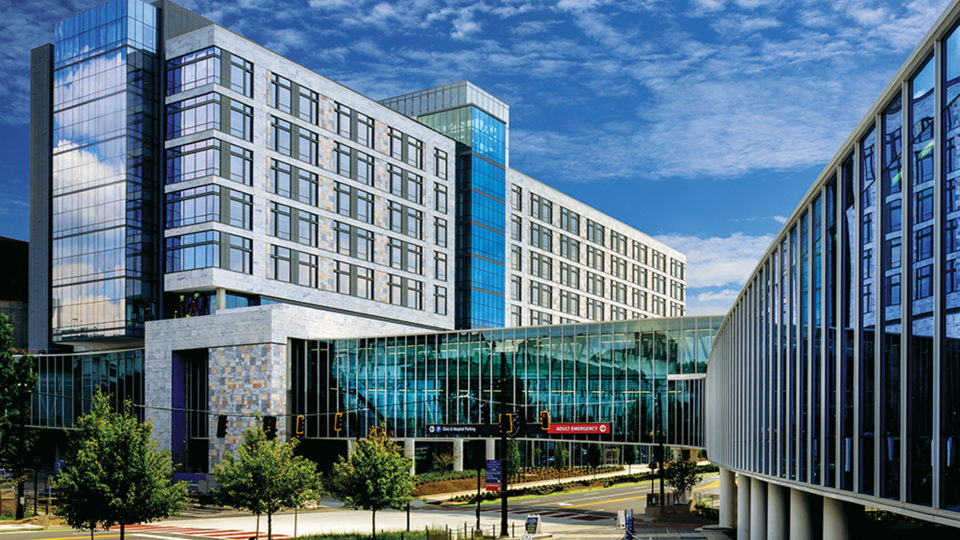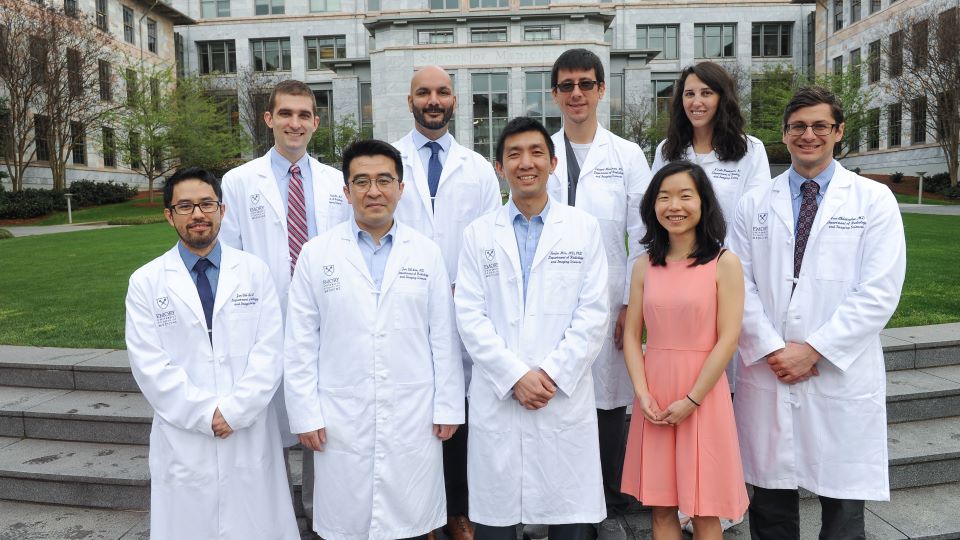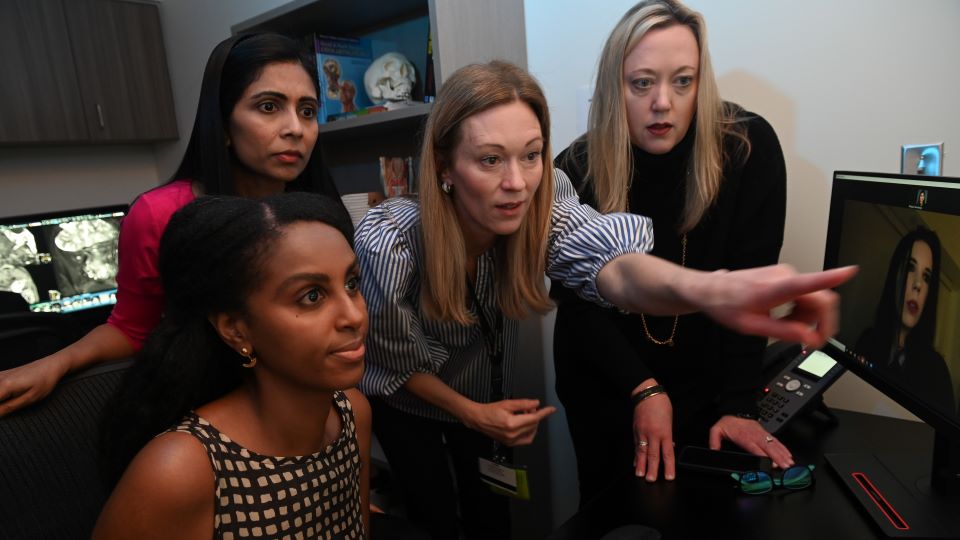Use these shortcut links to find all the information you need about our program's application process, alumni, faculty, and benefits. Below are details about the fellowship curriculum.
Clinical Rotations
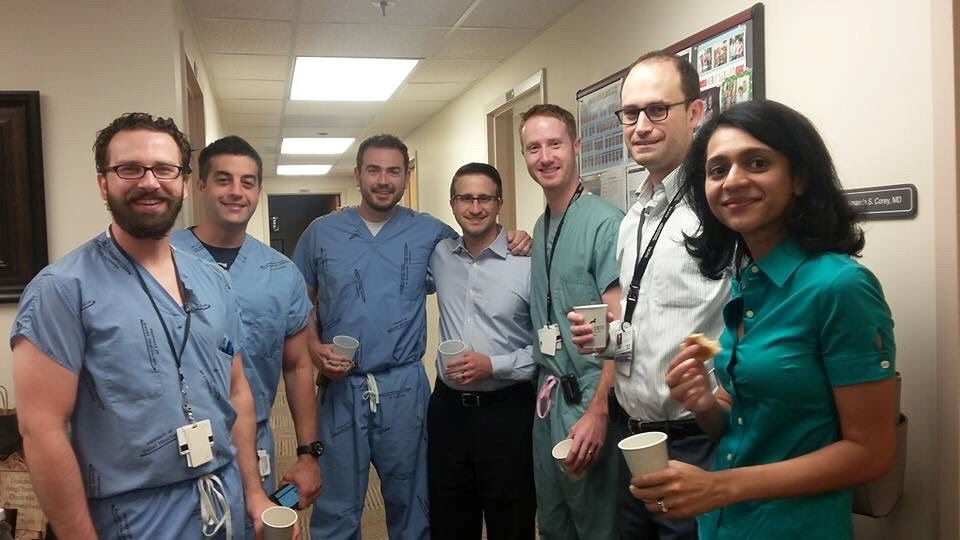
Emory University Hospital Neuroradiology
The rotation consists primarily of CT and MRI examinations performed on complex inpatients. Fellows also gain experience with fluoroscopic-guided lumbar punctures, myelograms and CT-guided epidural blood patches.
Brain Health Center
This rotation is embedded in the Neurology Clinic at the Brain Health Center outpatient clinic. Outpatient MRI examinations, including a high volume of examinations for primary and metastatic brain tumors, epilepsy, multiple sclerosis, cerebrovascular disease, neurodegenerative conditions, pituitary disorders, vascular malformations/aneurysms, and degenerative, inflammatory, and neoplastic diseases of the spine. State-of-the-art advanced MR imaging techniques are incorporated routinely into the daily workflow including DSC MR perfusion, DTI, MR spectroscopy, fMRI, SWI, time-resolved MRA, and MR myelography/cisternography.
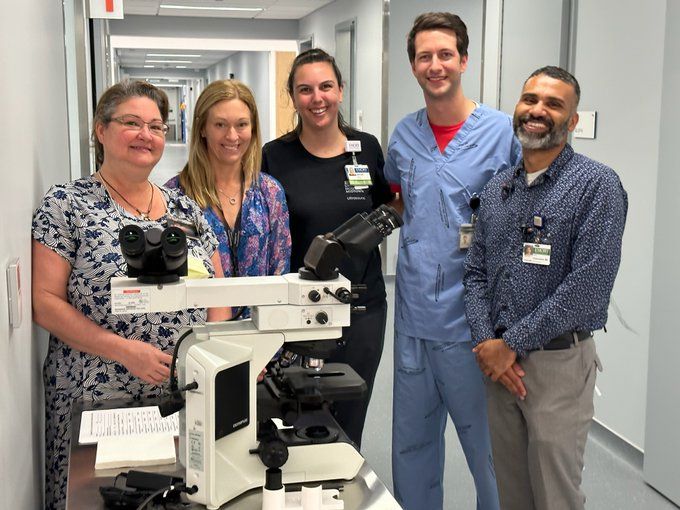
Head and Neck Imaging
This innovative service is embedded within the ENT clinic at Emory University Hospital Midtown and supports otolaryngology, ophthalmology, oral surgery, radiation oncology, and medical oncology services for a high volume and variety of CT, MRI, and PET-CT examinations.
The head and neck radiology service draws from imaging studies performed at Emory University Hospital, the Winship Cancer Institute, and Emory University Hospital Midtown, as well as Emory-affiliated outpatient imaging centers. Fellows gain valuable consultation experience by participating in a daily multidisciplinary clinic where specialists from head and neck radiology, head and neck surgery, radiation oncology, and medical oncology meet daily in a “tumor board” style format to discuss 4-5 new head and neck cancer patients visiting clinic that day. Fellows also gain invaluable experience with clinical context and patient management. They also become comfortable independently performing biopsies in the head and neck with CT and ultrasound guidance.
Children's Healthcare of Atlanta Neuroradiology
This rotation will be based at Children's Healthcare of Atlanta's brand new Arthur M. Blank Hospital as well as at Children's Healthcare of Atlanta at Scottish Rite Hospital. Fellows will work with our pediatric neuroradiology colleagues. There are a wide variety of CT and MRI examinations performed for pediatric brain, spine, and head and neck conditions. Advanced MRI imaging techniques are also incorporated into the daily workflow.
Grady Neuroradiology
The Grady Hospital rotation exposes fellows to emergent and complex cases at one of the national’s busiest level I trauma and comprehensive stroke centers. Fellows read CT and MR imaging of conditions including cerebrovascular diseases, trauma, rare and opportunistic infections, and head and neck cancer, among others. Fellows gain experience in fluoroscopic-guided lumbar puncture, CT myelography, and ultrasound and CT-guided biopsies.
Emory University Hospital Neuroangiography
This rotation is based at Emory University Hospital, which is a referral center for subarachnoid hemorrhage and specializes in the endovascular treatment of cerebral aneurysms, arteriovenous malformations, and acute stroke. Fellows will rotate with the endovascular team and learn about diagnostic neuroangiography, interventions, peri-operative care, and follow-up of patients with neurovascular disorders.
Emory University Hospital Evening Shift
A fellow will provide preliminary interpretation of emergent and inpatient neuroradiology cases in the evening and take beeper call for emergent overnight procedures (rare) from home. The rotation is from Monday through Friday from 4:30 - 11:30 p.m. at Emory University Hospital and the fellow will work independently under the supervision of a neuroradiologist working remotely.
Weekend and Holiday Shift
Fellows will share responsibility for weekend and holiday shifts, averaging 11-12 days during the year. The fellow will work with the weekend neuroradiology attending, working onsite at Emory University Hospital from 8 a.m. to 8 p.m., and then take pager call from home. Fellows will receive the day offf after each weekend shift.
Academic and Elective Time
Fellows will have dedicated time throughout the year to pursue academic interests or elective rotations. This will be scheduled as part of a jeopardy rotation wherein fellows also provide coverage for absent fellows, averaging to approximately three weeks of academic/elective time during the year. We want to support fellows across a broad range of interests and experiences in research (see below).
Interdisciplinary Conferences
Fellows gain experience and skills necessary to become an expert in the multiple subspecialties of neuroradiology by presenting clinical cases for our numerous interdisciplinary conferences.
Fellows prepare cases with faculty guidance for the following conferences:
- Neuroradiology - Neurosurgery Conference (monthly)
- Head and Neck Multidisciplinary Conference and Tumor Board (daily)
- Adult Brain Tumor Board (weekly)
- Pediatric Neuro-Oncology (weekly)
- Thyroid Tumor Board (monthly)
- Neuro-Ophthalmology Conference (monthly)
Fellows are encouraged to attend the following conferences while on rotations:
- Neuro-Immunology Conference (biweekly)
- Pediatric ENT Conference (monthly)
- Pediatric Sickle Cell Conference (monthly)
- Epilepsy Conference (weekly)
- Vascular Anomalies (weekly)
- Complex Spine Case Orthopedic Conference (monthly)
- Interdisciplinary Stroke Conference
- Grady Neuro-Oncology Tumor Board
- Pediatric Neurology/Neuroradiology Conference
- Pediatric Neuro-Ophthalmology Conference (monthly)
- Grady Marcus Stroke Neurovascular Conference (weekly)
Educational Curriculum
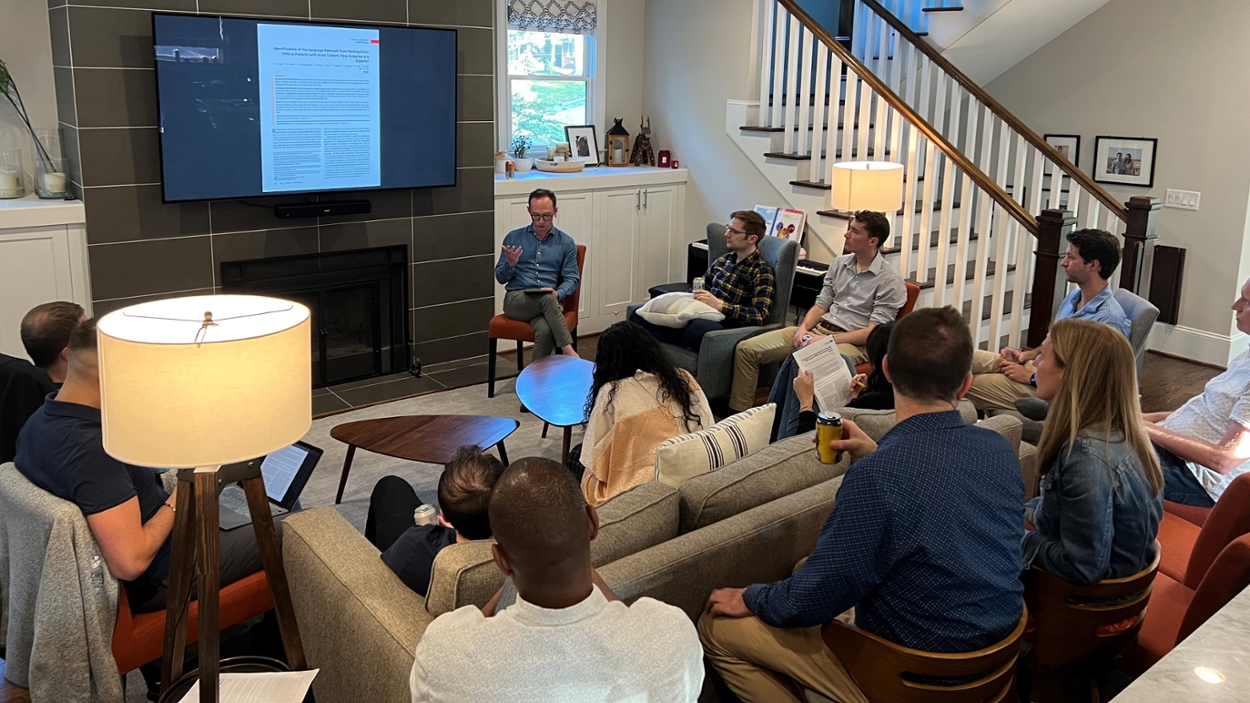
Neuroradiology fellows benefit from several dedicated and recurring educational conferences and learning opportunities:
- Fellows’ Didactic Conference: This is a didactic fellow-oriented conference series aimed at covering the wide breadth of neuroradiology and head and neck topics. It is presented by a neuroradiology faculty member every Thursday at 7 a.m. Content-related lectures are grouped throughout the year to facilitate learning in the sub-specialties of head and neck, pediatric neuroradiology, spine, and functional neuroimaging. Collaborating colleagues often augment these lectures with clinical presentations, providing clinical context for commonly encountered neuroimaging examinations.
- Fellows’ Case Conference: This case-based conference aims to give the fellows practical experience taking a variety of cases in real time and with faculty feedback. It is attended by all of the available Division of Neuroradiology fellows, residents and other trainees from 8-9 a.m. every Thursday. It is a great time for fellows to gain feedback from faculty and also learn different faculty approaches to cases, including next steps in management and communication of findings.
- Fellow’s Morbidity and Mortality Conference: Nine M&M neuroradiology conferences per year allow a robust discussion of missed cases to highlight blind spots, cultivate a culture of learning from mistakes, and to teach fellows the broad categories of perceptual and interpretive errors.
- Neuroradiology – Neurosurgery Conference: This monthly teaching conference aims to show the most interesting neurosurgical cases with joint presentations from neuroradiology fellows and neurosurgery residents. This conference teaches our fellows to work closely with their neurosurgery colleagues to prepare cases, to learn the critical imaging answers/findings that will most affect management, and to hear faculty perspectives on imaging interpretation and best practices for surgical approach/management.
- Fellowship Journal Club: Three evening journal clubs provide the opportunity to discuss and critique current literature across a variety of topics chosen by the fellows and an assigned mentor. This experience is designed to help fellows sharpen their critical thinking and analytical approach to the literature and its practical application.
Research
Fellows are highly encouraged to lead or participate in research or scholarly projects with abundant resources and mentors in our department and wider Emory community. Past fellows have been highly successful in presenting abstracts and educational exhibits at national meetings, winning awards, and authoring publications.
Dedicated research facilities available at the Emory Center for Systems Imaging include several 3T and a 7T research MRI, PET-MRI, PET-CT, and small animal scanners. Emory National Primate Research Center is one of only eight national primate research labs in US and provides advanced facilities for laboratory and animal research. The highly ranked Coulter Department of Biomedical Engineering of Emory and Georgia Tech and the Emory Bioinformatics and Computer Science departments also are great partners.



